|
said “Nong Dow” or “Sangdow Boonsri”, an EDF scholarship student who is studying in Secondary School Year 2 (Grade 8), Ban Non Du School, Amnat Charoen Province. She told us about the difficulty in her journey to school.
 1-kilometer gravel ridge that “Nong Dow” uses to go to school and go back home every day.
1-kilometer gravel ridge that “Nong Dow” uses to go to school and go back home every day.
Due to the fact that Nong Dow’s family does not have their own house and land, they need to live in their cousin’s land in exchange of taking care of the land and helping him doing rice farming and harvesting. Therefore, the house they are living in is just an old wooden shed covered with a roof made from zinc and thatch. The shed was formerly used for storing agricultural equipments. There is no electricity, tap water, or any facility whatsoever. The only entrance to it is the path through the gravel ridge which will be so dark at night that it almost cannot be seen.
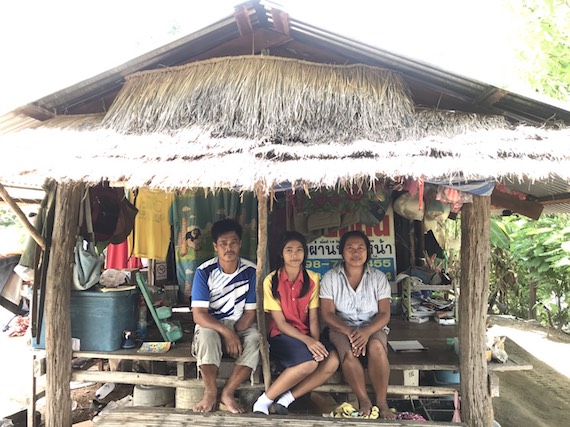 “Nong Dow” with her mother and father in the old shed built in the rice field of their cousin without tap water and electricity.
“Nong Dow” with her mother and father in the old shed built in the rice field of their cousin without tap water and electricity.
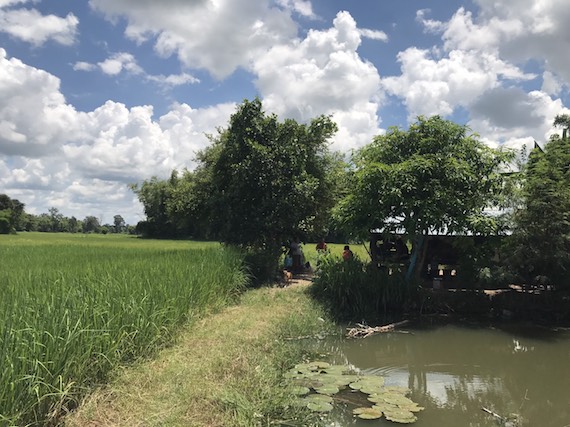 The only entrance to Nong Dow’s house is through the narrow earthen dyke.
The only entrance to Nong Dow’s house is through the narrow earthen dyke.
Nong Dow’s father is a disabled man having only one arm. He works as a daily employee. With his disability, he cannot work like a normal person. There are many frequent times that his employer pays him only 200 baht per day. As for Nong Dow’s mother, she only has little income from helping the cousin to do rice farming, harvesting, and taking care of the rice field. Thus, the income mainly comes from the father. There are many times that the income does not cover the expenses and they need to borrow money from their relatives.
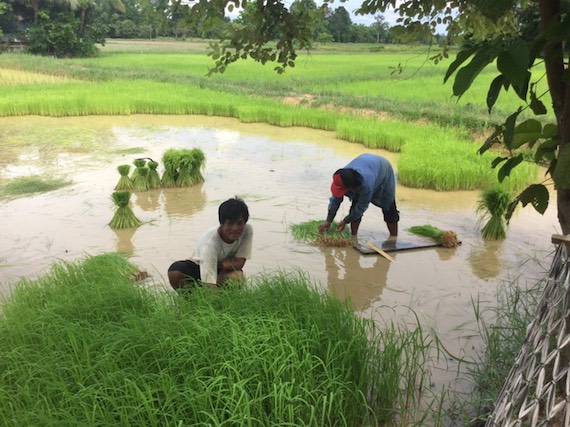 Even though being disabled and having only one arm, Nong Dow’s father is the main income earning person of the family.
Even though being disabled and having only one arm, Nong Dow’s father is the main income earning person of the family.
Other than being responsible for her study, Nong Dow also helps her mother on all the house chores, including feeding ducks and chickens, and watering the plants grown for food. The surplus vegetables will be sold to other people. Moreover, during the weekend she will go to help her father doing rice farming and help lifting up heavy equipments for her father because her father has only one arm and it is more difficult for him to do such task. For a girl of 14 years old, it seems that she is carrying too much weight on her shoulders. But she never complains about it because she would like to lighten her parents’ load as much as possible.
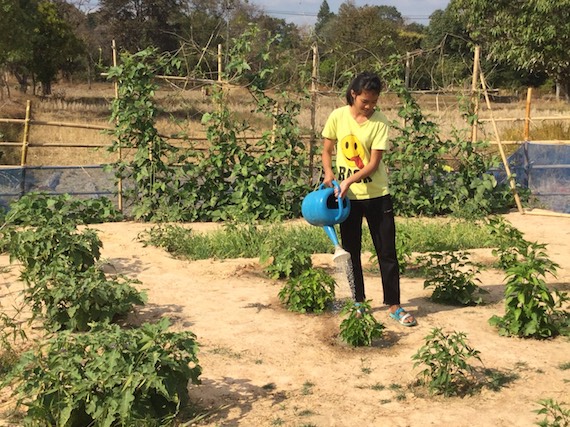 Every evening after school and during the weekend, Nong Dow will help her parents on the house chores, including watering plants and feeding ducks and chickens.
Every evening after school and during the weekend, Nong Dow will help her parents on the house chores, including watering plants and feeding ducks and chickens.
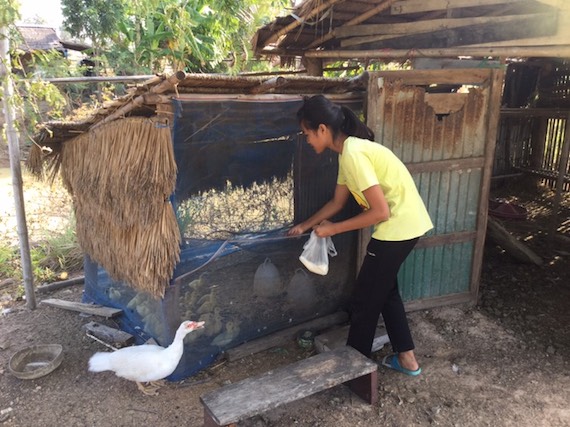
Ms. Karuna Choomchan who is the teacher in charge of taking care of EDF scholarship students of Ban Non Du School told us, “Even though Nong Dow’s family is poor, Nong Dow has never been upset about it. Instead, she uses it as a drive to focus more on her study. And she has a very good grade (GPA 3.83). Besides, she is being loved among friends and she regularly gives her teachers a hand. Her father and mother take good care of her and would like to support her to have high education so that she will not suffer like them but they have the difficulty doing that because of poverty. Regarding the subject that Nong Dow is good at, it is English because she loves learning foreign languages and she would like to become an English teacher.”
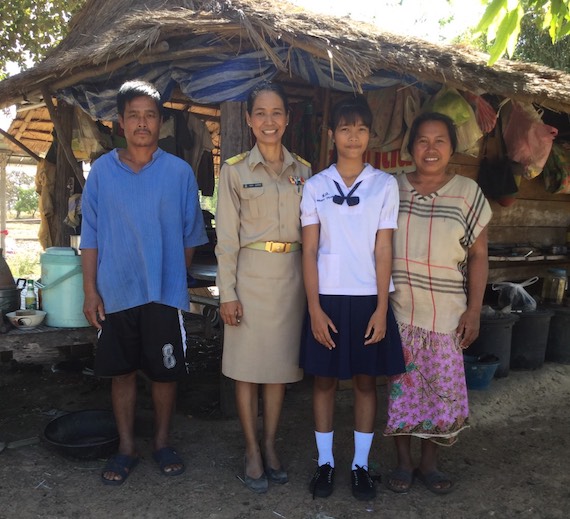 Ms. Karuna Choomchan, the teacher taking care of EDF scholarship students of Ban Non Du School, while visiting Nong Dow’s house at the time Nong Dow applied for the scholarship.
Ms. Karuna Choomchan, the teacher taking care of EDF scholarship students of Ban Non Du School, while visiting Nong Dow’s house at the time Nong Dow applied for the scholarship.
When we asked Nong Dow about the gift she would like to have on New Year Day, she told us with the hope in her sparkling eyes, “It would be nice if I can have a bicycle to ride to school and to help my father doing rice farming and to bring the vegetables we grew to sell.”
Giving the underprivileged student a bicyle in the upcoming happy and sharing festival would not only grant you a smile on your face, but it will also let you help a student to travel to school and do daily activities more conveniently and safely. Additionally, it will also help the student to exercise for good health.
If it is possible, Nong Dow would like to have a bicycle for the upcoming New Year Day. She will ride it to school and to help her father doing rice farming.
From 1 November 2017 to 31 January 2018, the EDF donors can choose the gift through “A Gift to Give Project” of EDF to donate it to your sponsored students or recommend it to the people that you know in order to pass on the happiness and smile to the underprivileged children. For many underprivileged children, the gift you give them might be the first gift in their life. And it could be an important drive for them to build up determination on their study so that they will have their bright future.
| 
